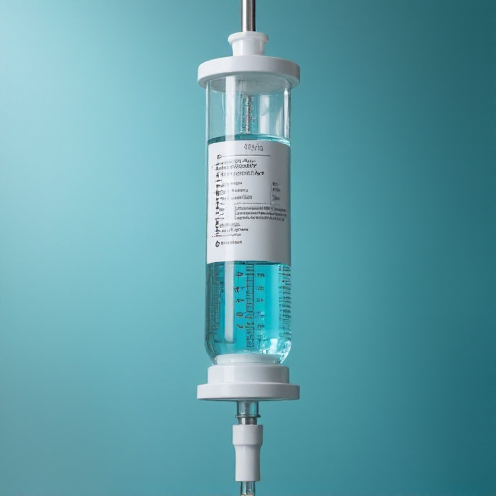Diflomol 1% Infusion
Product Info
| Prescription required | Yes |
| Marketer | Swastik Life Sciences |
| Active Ingredient | Paracetamol (1% w/v) |
| Salt Synonyms | Acetaminophen |
| Storage | Store below 30°C |
| Chemical Class | P-Aminophenol Derivative |
| Habit Forming | No |
| Therapeutic Class | PAIN ANALGESICS |
| Action Class | Analgesic & Antipyretic-PCM |
| User Rating | 4.9 |
| User Reviews | 771 |
FAQ


















Diflomol 1% Infusion Reviews
Diflomol 1% is administered by a doctor or a nurse and should not be self-administered. Depending on the severity of your underlying illness, your doctor will decide the precise dose and schedule as per which this injection is to be given. It starts working within one hour. Inform your doctor if you are also taking other medications containing paracetamol to avoid an overdose. You should let your doctor know if your pain or fever does not subside.
Vomiting, difficulty sleeping, and constipation may be seen as side effects in some patients. Consult your doctor if these side effects do not resolve with time and persist for a longer duration of time. Inform your doctor immediately if any rash or allergic reaction is observed while taking this medicine.
Pregnant and nursing women should use it under medical supervision only. It should be used with caution in patients with liver and kidney disease or alcohol abuse. It is not recommended in patients with severe or active liver disease.
How Diflomol 1% Infusion Works
How to Use Diflomol 1% Infusion
Benefits of Diflomol 1% Infusion
- In Pain relief: Diflomol 1% is a common painkiller used to treat aches and pains. It works by blocking chemical messengers in the brain that tell us we have pain. It is effective in relieving pain caused by headache, migraine, nerve pain, toothache, sore throat, period (menstrual) pains, arthritis, and muscle aches. This medicine is very widely used and very rarely causes side effects if taken at the right dosage. Take it as it is prescribed to get the most benefit. Do not take more or for longer than needed as that can be dangerous. In general, you should take the lowest dose that works, for the shortest possible time. It is also the first choice of painkiller during pregnancy or breastfeeding.
- In Treatment of Fever: Diflomol 1% is also used to reduce a high temperature (fever). It works by blocking the release of certain chemical messengers that cause fever. It may be prescribed alone or in combination with another medicine. You should take it regularly as advised by your doctor.
Uses of Diflomol 1% Infusion
- Treatment of Fever
- Pain relief
Diflomol 1% Infusion Side Effects

Safety Tips
Quick Tips
- Your doctor may regularly monitor your kidney function, liver function and levels of blood components if you are taking this medicine for long-term treatment.
- Diflomol 1% helps in relieving moderate pain and fever for the short-term, especially following surgery.
- Inform your doctor if you suffer from liver disease, severe kidney disease, or alcohol abuse.
- Inform your doctor if you experience symptoms such as feeling or being sick, weight loss, pale skin (pallor), or abdominal pain within the first 24 hours as it indicates an overdose.
- Inform your doctor if you are also taking other medications containing paracetamol.
References
- Grosser T, Smyth E, FitzGerald GA. Anti-Inflammatory, Antipyretic, and Analgesic Agents; Pharmacotherapy of Gout. In: Brunton LL, Chabner BA, Knollmann BC, editors. Goodman & Gilman’s: The Pharmacological Basis of Therapeutics. 12th ed. New York, New York: McGraw-Hill Medical; 2011. pp. 982-84.
- Paracetamol/Acetaminophen. San Diego, CA: Cadence Pharmaceuticals, Inc; 1951 [revised Nov. 2010].
- Briggs GG, Freeman RK, editors. A Reference Guide to Fetal and Neonatal Risk: Drugs in Pregnancy and Lactation. 10th ed. Philadelphia, PA: Wolters Kluwer Health; 2015. pp. 8-12.
- Furst DE, Ulrich RW, Varkey-Altamirano C. Nonsteroidal Anti-Inflammatory Drugs, Disease Modifying Antirheumatic Drugs, Nonopioids Analgesics, & Drugs Used in Gout. In: Katzung BG, Masters SB, Trevor AJ, editors. Basic and Clinical Pharmacology. 11th ed. New Delhi, India: Tata McGraw Hill Education Private Limited; 2009. pp. 635-36.
- Central Drugs Standard Control Organisation (CDSCO).
- Acetaminophen [Prescribing Information]. Hazelwood, MO: Mallinckrodt Hospital Products Inc.; 2018.
- Chaves RG, Lamounier JA. Breastfeeding and maternal medications. J Pediatr (Rio J). 2004;80(5 Suppl):S189-S198.
